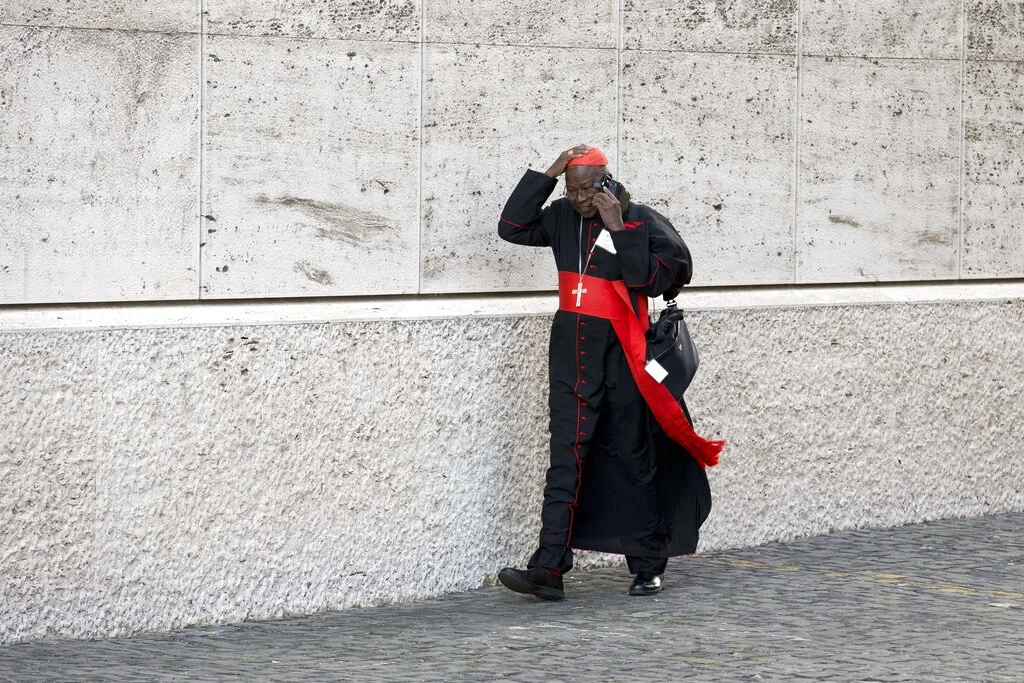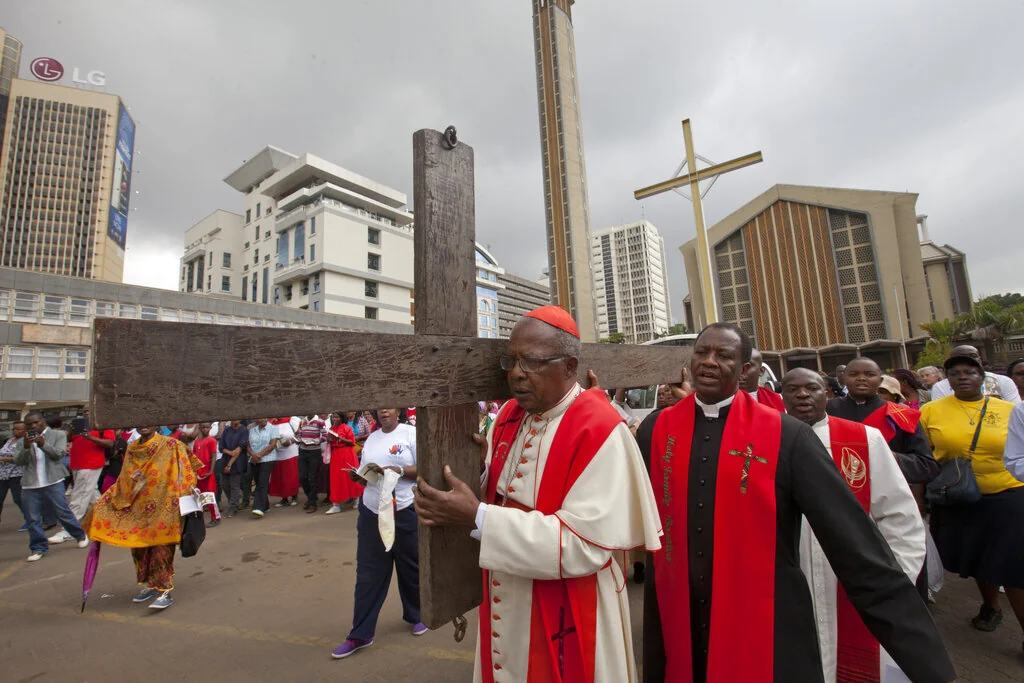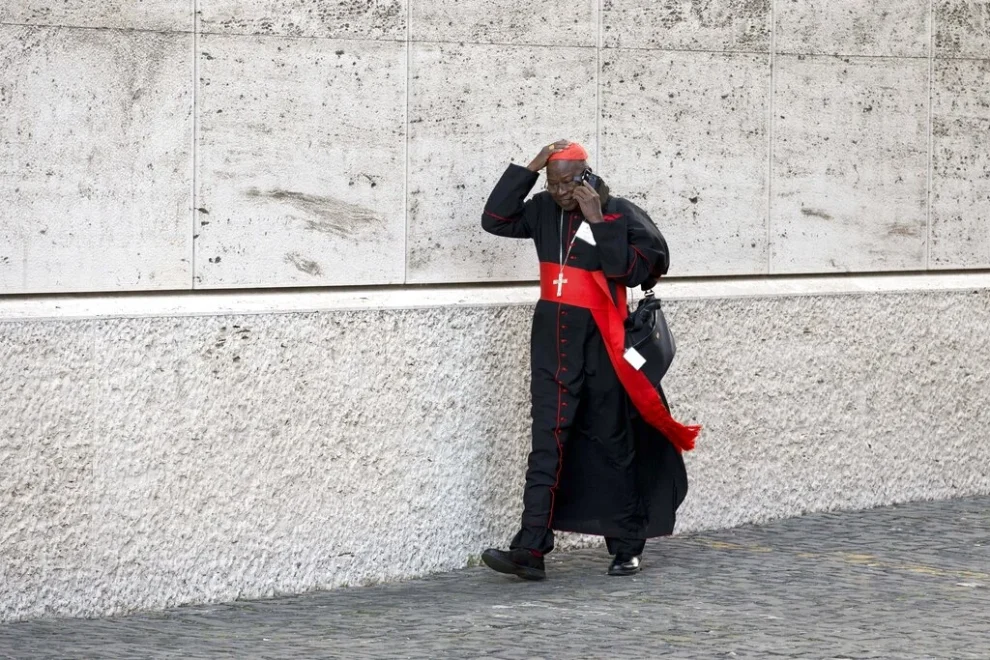Two cardinals of the Catholic Church from Africa were rejuvenated below the age of 80 this week, allowing them to vote in the upcoming conclave.
It wasn’t the kind of miraculous event referred to the Congregation for the Causes of Saints, but an efficient bit of legal fiction embraced by the Pontifical Yearbook.
Cardinal Philippe Ouédraogo of Burkina Faso was ruled out as an elector on Jan. 25 of this year, the day he turned 80, according to the yearbook. But that birthday was fake — the reality is, no one knows when Ouédraogo was born. Not even him.
“In my village, there were no hospitals or schools. I was born at home and was not given a birth date,” the cardinal previously explained in an interview with Dutch outlet Nederlands Dagblad.

“In Africa, birthdays don’t matter,” he said. “We celebrate community events, not individual ones. A birthday has little influence on social life.”
When Ouédraogo began pursuing the priesthood, his seminary gave him a manufactured birthdate for logistical reasons — Jan. 25, 1945. He then used this date on official government documents for years.
Later in life — the details of when are difficult to discern — the government of Burkina Faso assigned him an entirely new birthdate: Dec. 31, 1945.
The national government uses the final day of the year as the default birthdate for those whose actual day of birth is unknown.
Ouédraogo presented official documents to the Holy See ahead of the conclave to change his birthday in the Pontifical Yearbook and roll his age back, just barely sneaking under the age limit at 79 years old.
Holy See press office director Matteo Bruni explained Ouédraogo’s birthday has been “modified with a valid document,” noting the Vatican understands that “not all countries enjoy the same quality of registry offices.”
Ouédraogo’s case is not unique.
A similar situation played out recently regarding Cardinal John Njue of Kenya, who similarly did not have his birthday documented as a baby.
Vatican documents listed the former archbishop of Nairobi as having been born on December 31, 1944. Once again, this was a legal fiction manufactured out of convenience.
In 2024, the Pontifical Yearbook quietly changed his birthdate to January 1, 1946, making him 79 years old in the Holy See’s eyes.
Njue, despite being eligible, did not travel to Rome and will not be voting in the upcoming conclave.
At first, there was some confusion about the nature of his absence. The cardinal initially placed the blame on the Vatican.

“Those who go there for the election are usually sent official invites, and that has not happened on my part,” he told Kenyan newspaper the Daily Nation. “The fact is that I have not been invited.”
His archdiocese later cleared the air and acknowledged they received an invitation from Kenya’s apostolic nuncio, the country’s papal diplomat. Instead, it appears that his poor health is holding him back from traveling.
“Owing to his current health condition, His Eminence John Cardinal Njue will be unable to travel to Rome and take part in the Conclave,” explained Archbishop Philip Arnold Anyolo, the current prelate of Nairobi.
SISTINE CHAPEL PREPPED FOR CONCLAVE AS BATTLE LINES ARE DRAWN FOR FUTURE OF CATHOLIC CHURCH
Observers outside the Catholic Church often imagine it governed under divine edicts — rules and regulations carved into marble with the authority of providence.
Pope Paul VI issued the act known as Ingravescentem aetatem (Latin: The advanced age”), which established the voting ineligibility of cardinals over 80. The pontiff would have been the first to tell you it was not a God-given dogma, but a pragmatic governing decision.
Cases like Ouédraogo and Njue are demonstrations that the Holy See is very much a government staffed and administrated by men, navigating a global society that challenge the church to act dynamically.
God promised St. Peter the Catholic Church would never be conquered. One or two extra cardinals at the conclave won’t be the end of the world.
























